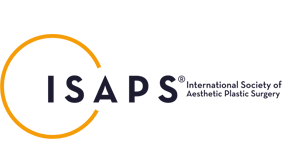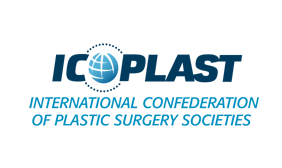Plastic Surgeon Nose Job: All You Need to Know
What is a Plastic Surgeon Nose Job?
A plastic surgeon nose job, also known as rhinoplasty, is a surgical procedure aimed at reshaping the nose for either aesthetic or functional purposes. This procedure can alter the size, shape, and structure of the nose to achieve a more balanced facial appearance or to correct breathing issues.
Who Might Want to Get a Plastic Surgeon Nose Job?
Individuals who are dissatisfied with the appearance of their nose or those experiencing breathing difficulties may consider a plastic surgeon nose job. This includes people with congenital deformities, injuries, or those seeking to enhance their facial symmetry.
- People with nasal deformities
- Individuals with breathing issues
- Those seeking aesthetic improvements
Benefits of a Plastic Surgeon Nose Job
Aesthetic Improvements
A plastic surgeon nose job can significantly enhance facial harmony by adjusting the nose’s size, shape, and proportions. This can lead to a more balanced and attractive appearance.
- Improved facial symmetry
- Enhanced profile and contour
- Correction of nasal humps or depressions
Functional Enhancements
Beyond aesthetics, rhinoplasty can address functional issues such as breathing difficulties caused by structural abnormalities within the nose.
Book A Consultation With Dr Shehzadi Tasneem
Installment Plan Available
- Improved airflow
- Correction of deviated septum
- Enhanced nasal function
Psychological Benefits
Undergoing a plastic surgeon nose job can boost self-esteem and confidence, leading to a better quality of life.
- Increased self-confidence
- Reduced social anxiety
- Enhanced overall well-being
Choosing the Right Plastic Surgeon for Your Nose Job 
Qualifications and Certifications
Ensure your plastic surgeon is board-certified and has the necessary qualifications to perform rhinoplasty. This guarantees that they have undergone rigorous training and adhere to high standards of practice.
- Board certification
- Accredited medical degrees
- Specialized training in rhinoplasty
Experience and Specialization
Look for a surgeon with extensive experience and specialization in nose jobs. A seasoned surgeon is more likely to deliver satisfactory results.
- Years of experience
- Number of successful procedures
- Specialization in rhinoplasty
Patient Reviews and Testimonials
Reading reviews and testimonials from previous patients can provide insights into the surgeon’s skills and patient care quality.
- Positive patient feedback
- Before and after photos
- High patient satisfaction rates
Rhinoplasty Techniques
Open Rhinoplasty
Open rhinoplasty involves making an incision across the columella, the tissue between the nostrils, allowing the surgeon to lift the skin and have a clear view of the nasal structures.
- Direct access to nasal structures
- Precise modifications
- Suitable for complex cases
Closed Rhinoplasty
In closed rhinoplasty, all incisions are made within the nostrils, leaving no visible scars. This technique is less invasive and typically has a shorter recovery time.
- No visible scars
- Reduced swelling and bruising
- Faster recovery
Revision Rhinoplasty
Revision rhinoplasty is performed to correct or improve the results of a previous nose job. This procedure is often more complex due to scar tissue and altered anatomy.
- Corrects previous surgery issues
- Enhances aesthetic outcomes
- Addresses functional problems
Preparing for Your Plastic Surgeon Nose Job
Initial Consultation
During the initial consultation, the surgeon will evaluate your nose, discuss your goals, and explain the procedure. This is also the time to ask any questions you may have.
- Comprehensive nasal evaluation
- Discussion of goals and expectations
- Detailed explanation of the procedure
Pre-Surgery Instructions
Your surgeon will provide specific instructions to prepare for the surgery, including guidelines on eating, drinking, and medication use.
- Avoid certain medications
- Follow dietary restrictions
- Arrange for post-surgery care
Food and Medications
Certain foods and medications can affect the surgery and recovery process. Your surgeon will advise you on what to avoid.
- Avoid blood-thinning medications
- Refrain from alcohol and smoking
- Follow a balanced diet
The Procedure: What to Expect 
During the Surgery
The surgery typically involves reshaping the nasal bones and cartilage to achieve the desired outcome. The specific techniques used will depend on your individual needs.
- Reshaping of nasal structures
- Use of grafts if necessary
- Precise surgical techniques
Anesthesia Options
Rhinoplasty can be performed under general anesthesia or local anesthesia with sedation, depending on the complexity of the procedure and patient preference.
- General anesthesia
- Local anesthesia with sedation
- Patient comfort considerations
Duration of the Procedure
The duration of a plastic surgeon nose job varies but typically ranges from 1.5 to 3 hours, depending on the complexity of the case.
- Average duration: 1.5 to 3 hours
- Complexity-dependent
- Post-operative monitoring
Recovery and Aftercare
Immediate Post-Operative Care
After the surgery, you will need to follow specific care instructions to ensure proper healing and minimize complications.
- Use of nasal splints
- Elevate head while sleeping
- Avoid strenuous activities
Long-Term Recovery Tips
Long-term recovery involves gradual resumption of normal activities and continued care to maintain the results of the surgery.
- Follow-up appointments
- Avoid direct sunlight
- Maintain a healthy lifestyle
When to Resume Normal Activities
Your surgeon will provide guidelines on when you can return to work, exercise, and other daily activities.
- Return to work: 1-2 weeks
- Resume exercise: 4-6 weeks
- Full recovery: 6-12 months
When to Contact Your Surgeon
If you experience severe pain, excessive bleeding, or signs of infection, contact your surgeon immediately.
- Severe pain
- Excessive bleeding
- Signs of infection
Related Topics
Combining Procedures: Chin Implants
Combining a nose job with chin implants can enhance facial harmony and balance, providing a more comprehensive aesthetic improvement.
- Enhanced facial balance
- Improved profile
- Comprehensive aesthetic results
Adolescent Rhinoplasty
Rhinoplasty for adolescents requires special considerations, including the patient’s physical and emotional maturity.
- Age considerations
- Emotional readiness
- Parental consent
Non-Surgical Nose Job Options
Non-surgical nose jobs use dermal fillers to temporarily alter the shape of the nose without surgery.
- Temporary results
- Minimally invasive
- Quick recovery
Contact Dr Shehzadi Tasneem Sultan
Schedule a Consultation
To learn more about rhinoplasty and determine if you are a candidate, schedule a consultation with Dr Shehzadi Tasneem Sultan.
A Lip enhancement expert helps people make their lips look fuller and more beautiful using special techniques and treatments Plastic surgery origins date back to ancient India where doctors fixed noses and ears using skin from other parts of the body
Local cosmetic specialists help people look and feel better They offer treatments like facials makeup and skincare advice
Frequently Asked Questions
How is a plastic surgeon nose job different from septoplasty?
A plastic surgeon nose job focuses on the aesthetic appearance of the nose, while septoplasty is performed to correct a deviated septum and improve breathing.
Is a plastic surgeon nose job a simple operation?
The complexity of a plastic surgeon nose job varies depending on the individual case. Some procedures are straightforward, while others may be more complex.
Will I need to stay in the hospital after my plastic surgeon nose job?
Most rhinoplasty procedures are performed on an outpatient basis, meaning you can go home the same day. However, complex cases may require an overnight stay.
How long is the recovery period for a plastic surgeon nose job?
The initial recovery period typically lasts 1-2 weeks, but full recovery can take up to 12 months as the nose continues to heal and settle into its new shape.
Are there risks associated with a plastic surgeon nose job?
Yes, like any surgery, there are risks such as infection, bleeding, and anesthesia complications. However, these risks can be minimized by following your surgeon’s instructions.
Does insurance cover a plastic surgeon nose job?
Insurance may cover a plastic surgeon nose job if it is performed for medical reasons, such as correcting a deviated septum. Cosmetic procedures are usually not covered.
How much does a plastic surgeon nose job cost?
The cost of a plastic surgeon nose job varies depending on the surgeon’s experience, location, and the complexity of the procedure. It typically ranges from $5,000 to $15,000.
Can I see what my nose might look like after surgery?
Many surgeons use computer imaging to show you a potential outcome of your surgery. This can help you visualize the changes and set realistic expectations.
Is a plastic surgeon nose job painful?
Most patients experience some discomfort and swelling after the surgery, but pain is usually manageable with prescribed medications.
Will my nose be packed after surgery?
Some surgeons use nasal packing to control bleeding and support the new structure, but it is typically removed within a few days.
How long will I be bruised after a plastic surgeon nose job?
Bruising and swelling are common after rhinoplasty and usually subside within 2-3 weeks. However, minor swelling can persist for several months.
What should I look for in a plastic surgeon for my nose job?
Look for a board-certified surgeon with extensive experience in rhinoplasty, positive patient reviews, and a portfolio of before and after photos.












